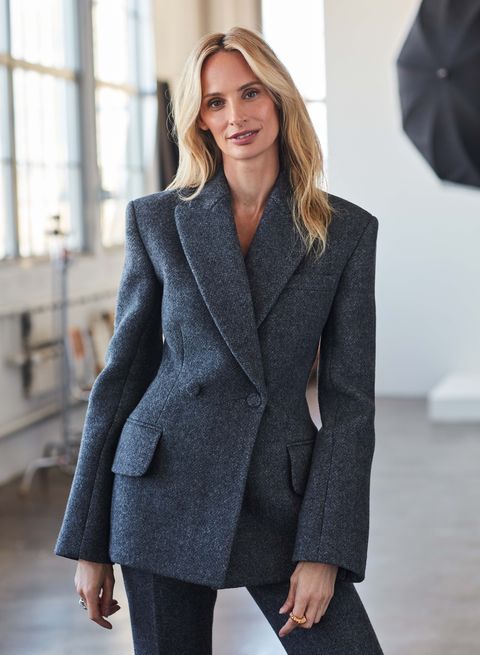The fashion industry has been undergoing significant changes in recent years as customers and businesses try to find more sustainable and environmentally friendly ways of working. Many parts of the traditional system need to be completely overhauled because they are no longer fit for purpose when it comes to production and waste in a world facing a climate catastrophe. One industry name who knows something about transforming the status quo is Moda Operandi founder Lauren Santo Domingo, who helped to introduce pre-order luxury shopping to consumers, a retail model which she believes is key to a more sustainable system.
“With a pre-order, a look is only produced when there is proven demand,” she tells us. “It is one of the most conscious ways to tap into what is next in fashion – and if everyone were to shop this way, there would be much less waste in the fashion cycle.”
The way Moda Operandi works is that it allows customers to shop from full designer collections before they have launched. These pieces are then produced on demand, rather than created through predictions at what will sell, something which tends to lead to discounts and waste for what does not. “The goal at the end of the season is that there is less promotion and less waste, making it a much healthier ecosystem.”
“In the traditional retail model, a buyer is deciding on what women who shop in their store will want to wear each season, but even with the most precise data from past season selling reports and astute trend predictions, there is still a huge amount of guesswork involved,” she explains. “It’s often the most commercial pieces that are sold in these stores, with many ending up on markdown, and eventually liquidated or destroyed, especially in the luxury sector.”
The information that Moda Operandi gets from customers pre-ordering also helps designers and other retailers to understand what will sell, she told us.
“As soon as we receive the order, we pass it on directly to the designer. They often use our selling reports to make decisions for their own retail stores or e-commerce shops – we are the only retailer who can provide this information prior to their factory orders being cut.”
While Moda Operandi was launched over a decade ago, in 2010, it is still the only fashion platform that allows customers to shop collections prior to production – and the concept of pre-ordering feels more relevant than ever as the industry looks for the best ways to revolutionize fashion commerce and minimize waste. This is particularly the case post pandemic, Santo Domingo says, where designers, retailers and customers were able to have a reset in their minds about how this system should work.
“The pandemic gave designers and retailers valuable data on what sells for them when consumer spending sentiment is low, allowing them to double down on what works and produce less waste.
“For designers, the reduced pressure to show on the typical fashion calendar provided a release from the industry grid and reassess their vision – they had a window to do their own thing, on their own terms.
“And for customers, having less opportunities to get dressed up means there was more thought behind each look or purchase – people really started to think about what they were buying, rather than giving into impulse.”
The pandemic also highlighted clear issues that existed within the retail cycle – and forced businesses to change how they worked.
“It became obvious that the shipping and markdown model was broken. Brands were shipping seasonal products far too early, at a timeframe when customers were not ready for it. This forced retailers to get competitive and run promotions, creating a race to be the first retailer to start a big markdown. The pullback in demand during the pandemic exposed this cycle.”
So, in many ways, the pandemic has forced the industry to look inwards and try to tackle some of these changes already. But of course, there is a long way to go for luxury retail – and part of this might be adopting the concept of pre-order on a larger scale, inspired by Moda Operandi’s business model, which Santo Domingo describes as: “Taking a traditional form of shopping and making it modern again.”
If you want to hear more of Lauren Santo Domingo’s insights on these trends, you can hear her talk on AMEX’s Shaping Insights podcast, where she shares her expert view on revolutionizing fashion commerce and sustainability. Listen to it here.
This content is created and maintained by a third party, and imported onto this page to help users provide their email addresses. You may be able to find more information about this and similar content at piano.io
